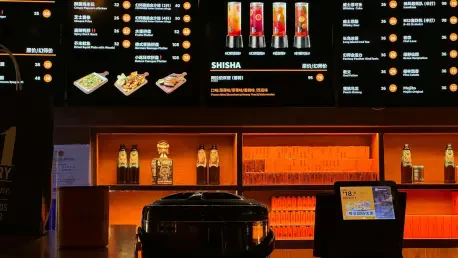In recent years, restaurant operators have faced the dual challenges of ongoing labor shortages and shifting consumer expectations, prompting them to lean heavily on technology to refine and optimize their operations. These technological advancements are not just fleeting trends; they signify a profound transformation in how the restaurant industry operates, driving innovation and allowing businesses to adapt dynamically to new market demands. The integration of comprehensive tools like Square, a sophisticated point-of-sale (POS) system, is a prime example of how technology is facilitating strategic management and operational efficiency. The restaurant sector has keenly embraced these advancements to improve service delivery, streamline processes, and enhance profitability, exemplifying the critical role technology continues to play in shaping the industry’s future.
Addressing Staffing and Operations with Technology
The continuous challenge of staffing instability has greatly impacted how restaurant owners manage their businesses. Persistent labor shortages have necessitated a reevaluation of conventional labor models and instigated significant changes in operational strategies. Operators are increasingly turning to technological solutions such as Square Payroll to streamline payroll processes, allowing proximity from routine tasks and dedicating greater focus on management and strategic operations. The automation of payroll not only reduces the risk of errors but also facilitates real-time insights into labor costs, enabling owners to make informed decisions that can directly affect the restaurant’s bottom line. This shift has been crucial for maintaining operational stability and efficiency in an unpredictable labor market.
Moreover, the move towards technological integration in operations has extended beyond payroll to include various facets of restaurant management. The adoption of loyalty programs, supported by platforms like Square for Restaurants, has emerged as a key strategy for maintaining and strengthening customer relationships. Approximately 43 percent of industry leaders have recognized the potential of these programs in generating sustained revenue streams. By leveraging real-time data analysis through such platforms, owners can refine their marketing strategies, ensuring they are more aligned with customer preferences and behaviors. This data-driven approach not only helps in boosting profits but also enhances the overall dining experience, aligning with the technological advances shaping the future of the industry.
Customer-Centric Innovations and Self-Service
Amidst the integration of technology in operational management, there is a parallel focus on enhancing customer experience through innovative solutions. The rise of online ordering systems and self-service kiosks has been transformative, addressing the modern consumer’s demand for convenience and speed. Brands like Oakberry Acai have widely adopted Square Kiosks, setting a precedent for customizable ordering experiences that reduce waste and accelerate service delivery. These kiosks allow customers to tailor their meals according to personal preferences, thereby streamlining the ordering process while minimizing human error. The reduction in wait times and enhanced order accuracy contribute significantly to improved customer satisfaction, demonstrating the efficiency technology brings to the forefront of restaurant operations.
Furthermore, the proliferation of digital solutions extends beyond kiosks to include more sophisticated platforms for managing various customer interaction points. Restaurants are increasingly utilizing mobile applications for reservation management, contactless payments, and personalized promotions, further reducing friction points in the dining experience. These advancements signify a broader shift towards customer-centric operations, where convenience, personalization, and efficiency are prioritized, creating a seamless experience for diners. Through the application of technology, restaurants can not only meet but exceed evolving consumer expectations, ensuring sustained competitiveness in the fast-paced hospitality sector.
Strategic Growth and Future Considerations
Restaurant owners are grappling with persistent staffing instability, which is forcing a reassessment of traditional labor strategies and ushering in significant operational changes. The ongoing labor shortage has driven many owners to rely on technology solutions such as Square Payroll to simplify payroll operations. This automation not only reduces errors but provides real-time insights into labor costs, empowering owners to make informed decisions that influence their financial health. The shift towards technology has become essential for maintaining efficiency amid a volatile labor market.
Moreover, technological integration extends beyond payroll, encompassing various aspects of restaurant management. Platforms like Square for Restaurants are supporting loyalty programs, crucial for cultivating long-term customer relations. About 43% of industry leaders see these programs as key in creating steady revenue streams. By utilizing data insights, owners can refine marketing strategies to better suit customer preferences, ultimately enhancing profits and dining experience, and keeping pace with technological advancements shaping the industry’s future.









